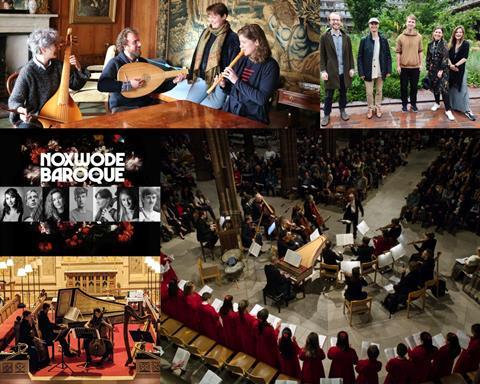Founder and CEO of Continuo Foundation Tina Vadaneaux answers some frequently asked questions for those stumped by grant applications

What is a grant panel looking for in an ensemble?
I imagine that any panel would look for projects which capture the imagination and are of the highest standard musically, to engage audiences of all ages. At Continuo Foundation we also aim to showcase the wonderful array of outstanding ensembles we are so fortunate to have in the UK, performing repertoire spanning over 700 years, and to bring attention to their outsized contribution to the classical music landscape. We look at the impact of a project in terms of creating employment for freelance period musicians and helping ensembles become more financially sustainable or moving to the next level and broadening their horizons artistically. We seek to prioritise those projects which couldn’t happen without our help.
We prefer to support live performances over recorded projects, as this fits with our mission to help enable live music to travel to underserved areas where there is little or no access to period-instrument concerts. This doesn’t mean we don’t support recorded performances. We do, but they need to have something special about them and ideally, create potential for a future concert tour or, for filmed performances, allowing an ensemble to engage with its supporters and widen its audience reach, which is so important.
New collaborations stand out, particularly experimenting with combinations of instruments and voices, or presenting works in a new context, such as the ensemble Pocket Sinfonia did for their series of concerts recreating the atmosphere of 19th-century living room parties with intimate chamber music versions of orchestral works.
To get a clearer picture of the types of projects a trust or foundation is supporting, I suggest always having a look at their previous grantees and the projects supported.
’I’m looking to apply for a grant. How do I even begin to figure out my costs?’
The finances of running a project can seem daunting. Creating a budget is primarily a question of looking at all the costs involved in undertaking a project and assessing where the money needed will come from. We have created a spreadsheet as part of our application, and this sets out the typical cost categories and sources of income. Completing this spreadsheet should be straightforward, even for those without fundraising experience. Once the project has been fully thought through, it should take no more than about 2 hours to complete the application online.
‘I have a wonderful, amazing creative project, but I don’t know how to put it into words, especially when there is a word limit. Any tips?’
Imagine you are aiming to convince a friend to come to your performance or participate in your project – what would you say? Giving a clear statement of what you propose to do, why you were inspired to create the project and what is unique about it or will make it appealing to audiences, should not require more words than you are allowed. At Continuo Foundation, we have added the ability to upload a PDF of the proposed concert programme or recording track list, as some applicants found that this was using up the word limit. We recommend pitching your project at its most compelling – we are looking for projects which are captivating, not those which tick the most boxes. So go for it: take risks, expand your horizon and be imaginative!
Imagine you are aiming to convince a friend to come to your performance or participate in your project – what would you say?
What are some typical mistakes one sees in a grant application? Do you ever see applications that are far too ambitious?
Surprisingly, one of the most common mistakes is leaving sections of the application form blank. It is very important to check your eligibility, read the guidelines carefully and pay attention to detail. We are looking for ensembles that will be able to bring their proposed projects to fruition successfully and completing the application form to a high standard is the first task in that journey!
Another pitfall to avoid is proposing a project which is overly ambitious, and as such, is perceived by our assessors to have too many risk factors. This doesn’t mean projects should be boring – quite the opposite – but do run that reality check to make sure you can deliver.
One last piece of advice: hit that deadline! In each of the three rounds of grants, we have received many more applications than we have had the funds to support. This means we need to take difficult decisions and there will be strong projects we are simply unable to support. It would be a pity to miss out because of a late submission, so start planning as soon as applications open.
Grants from Continuo Foundations are open to professional UK-based period-instrument ensembles. Applications for Round 3 were open from 11 January until 7 February 2022. A total of 25 grants of between £2,000 and £10,000 have just been awarded for projects taking place between April and September 2022. A fourth round of grants is planned for July 2022. Full details about grants from Continuo Foundation are available on the website: www.continuofoundation.co.uk











































No comments yet